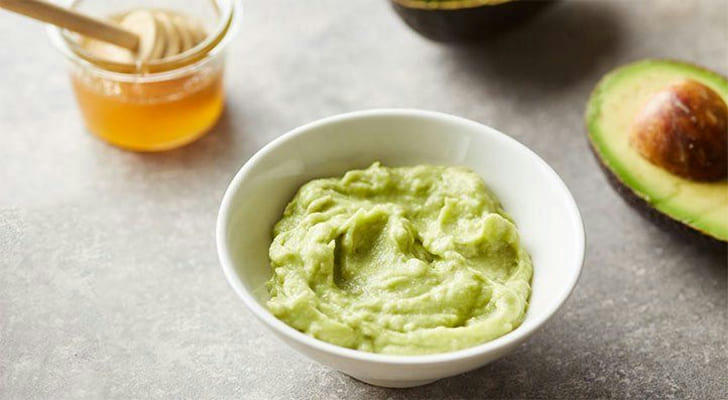13 Natural Dry-Skin Remedies You Can DIY at Home

Dry skin can be caused by various factors, such as hot showers, winter weather, and aging. Thankfully, you don’t always need to head to the drugstore for relief—your kitchen might have everything you need to treat dry skin naturally. Below are 13 DIY remedies for soothing and moisturizing dry skin, along with some real-world examples of people who have benefited from them.

1. Olive Oil Moisturizer
Extra-virgin olive oil is packed with vitamin E and antioxidants, which can help repair damaged skin. However, it may clog pores, so it’s best for non-acne-prone areas like elbows. Use sparingly and consult a dermatologist if unsure.
Case Study: Maria, a 45-year-old teacher, struggled with extremely dry elbows due to constant exposure to cold air in her classroom. After trying olive oil as a quick fix, she noticed significant improvement in just a few days. By applying a small amount nightly, Maria was able to restore moisture to her skin without resorting to
2. Avocado Mask
Combine ½ avocado with ¼ cup Greek yogurt, honey, and turmeric for an antioxidant-rich mask. This can help with skin texture and inflammation. Research also suggests that consuming avocado may improve skin elasticity.
3. Coconut Oil and Sugar Scrub
Mix 1 cup sugar with ½ cup coconut oil for a gentle exfoliating scrub. Adding essential oils like lavender can enhance relaxation. However, avoid using this scrub on sensitive or acne-prone skin.
Case Study: Tom, a 30-year-old mechanic, faced rough and dry hands due to his work. After using a homemade coconut oil and sugar scrub twice a week, Tom noticed smoother skin and fewer cracks in his hands. He now includes the scrub in his regular routine.
4. Oatmeal Soak
Oatmeal can naturally hydrate dry skin when added to a warm bath. It’s particularly effective for eczema, thanks to its anti-inflammatory properties. Try tying oats in pantyhose and running your bathwater through them for a mess-free soak.
5. Oatmeal Honey Mask
For a gentle exfoliator or mask, mix 2 tablespoons of oats with 1 tablespoon of honey. Leave it on for 15–20 minutes. Honey's antimicrobial properties can also aid in healing.
6. Coconut Oil Before Bed
Apply solid coconut oil to your skin before bed, focusing on chapped heels and hands. Cover with socks or gloves for extra moisture.
7. Nourishing Oils
Natural oils like jojoba, argan, and avocado oil can help recreate your skin's natural barrier. Apply a few tablespoons in your bath or post-shower for soft, moisturized skin.
8. Milk Compresses
Soak a clean cloth in cool milk and apply it to dry, irritated areas for 5–10 minutes. Milk’s lactic acid is a natural exfoliant that can help improve skin hydration and texture.
9. Fruit Enzyme Exfoliants
Fruit enzymes like bromelain (pineapple) and papain (papaya) are gentle exfoliators. Look for fruit-enzyme-infused cleansers or masks to use twice a week.
10. Aloe Vera
Aloe vera can alleviate redness and irritation during dry winter months. It contains hyaluronic acid, which locks in moisture. However, some people may develop allergic reactions, so patch-test before widespread use.
11. Honey Spot Treatment
Honey, especially manuka honey, can be used as a spot treatment for dry patches. Its antimicrobial properties help keep skin moist and protect against infection.
12. Tea Bags for Inflammation
Brewed tea bags (green, black, chamomile) can soothe inflammation. For puffy eyes, apply cool tea bags under your eyes for 5–10 minutes.
13. Petroleum Jelly
Petroleum jelly (e.g., Vaseline) can alleviate dry skin, prevent chafing, and promote healing. Apply it on damp skin, but avoid acne-prone areas.
Case Study: After dealing with cracked heels for years, Lisa, a 38-year-old nurse, finally found relief by applying petroleum jelly and covering her feet with socks overnight. Within a week, her heels were noticeably softer and free from cracks.
5 Expert Tips to Prevent Dry Skin Relapses
1.Moisturize Daily: Use thick lotions or creams immediately after showering to lock in moisture.
2.Skin-Friendly Bathing Habits: Limit hot showers to 5–10 minutes and use mild cleansers instead of harsh soaps.
3.Avoid Harsh Chemicals: Ingredients like alcohol and vinegar can worsen dryness.
4.Stay Hydrated: Drink water regularly to support skin health.
5.Dress for the Weather: Wear gloves and protective clothing to shield your skin from harsh conditions.
Why Choose Natural Remedies?
If long ingredient lists on skincare products concern you, natural remedies might be a better option. Many over-the-counter products contain preservatives and additives that could irritate the skin. Oils and simple kitchen ingredients like oatmeal and honey are free of preservatives, making them ideal for those with sensitive skin. However, it’s essential to remember that natural remedies aren’t regulated by the FDA, so it’s wise to consult a dermatologist before adding new DIY recipes to your routine.
The Takeaway
Most dry skin issues don’t require a dermatologist visit. Simple home remedies using ingredients like coconut oil, oatmeal, and aloe vera can often effectively soothe and hydrate your skin. These natural treatments provide moisturizing and protective benefits, helping you maintain healthy, vibrant skin.
